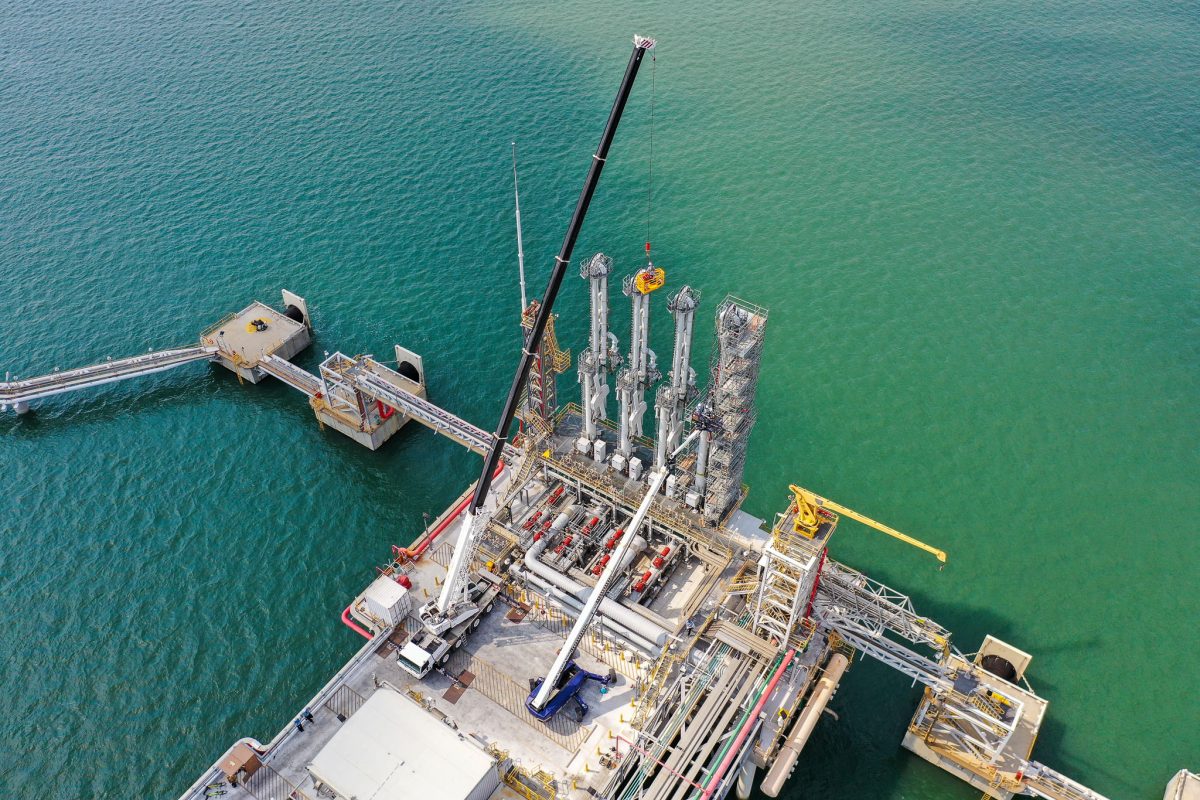In an exclusive interview with Oil & Gas Middle East, Marco Villa, COO of Technip Energies, discusses the company’s key projects, role of technology to address decarbonisation, and the need for collaboration to accelerate the energy transition.
What are Technip Energies’ ongoing projects and what’s in the pipeline?
We have a long-standing presence in the Middle East, having delivered more than 500 projects and providing services to the energy industry in the fields of gas and LNG, refining, petrochemicals and ethylene. We have major projects under execution in the region.

The first one is the LNG North Field East project for QatarEnergy for which we are delivering 4 mega trains of LNG, associated with a large carbon capture and sequestration facility, leading to more than 25% reduction of greenhouse gas emissions when compared to similar LNG facilities. This expansion project will produce approximately 33 million tons per annum of additional LNG, increasing Qatar’s total production from 77 to 110 million tons per annum.
The second one is Borouge in the UAE for ADNOC and Borealis, where we are currently delivering a new ethane cracker unit, based on our proprietary technology, to help ADNOC sustain its position in the growing polyolefin market.
The third one I would state is the Bapco Modernisation Programme (BMP), which is poised to be one of the largest projects ever undertaken in the history of Bahrain. BMP’s objectives are to increase refining capacity, enhance the product slate, improve the energy efficiency, and emerge as one of the most competitive and environmentally compliant refineries in the region.
We are also early engaged in the offshore part of the Hail & Ghasha project for which we are helping ADNOC to unlock their natural gas reserves to enable domestic gas self-sufficiency, while incorporating carbon capture to decarbonise their assets.
When we look at the pipeline, we see a lot of opportunities in the fields of services, LNG, petrochemicals and energy transition related themes for which we are already engaged in studies and early engineering works. Last but not least, our Project Management Consultancy activities keep on expanding at a steady pace in Kuweit, Abu Dhabi and Iraq, beyond our traditional fields of activities.
What will be the role of technology and innovation to address decarbonisation needs?
Technology is key to decarbonising the industry, and we are convinced research and development is at the heart of the energy transition.
In decarbonisation, Technip Energies offers efficient, competitive and at-scale carbon capture solutions. For example, we have an alliance with Shell since 2012 for post combustion Cansolv CO2 capture solutions. With this technology, Technip Energies can bring end-to-end project delivery experience in front-end engineering design (FEED), engineering, procurement and construction (EPC), commissioning and startup, as well as life-of-asset services.
Last year, we launched BlueH2 by T.EN, our full suite of deeply decarbonised and affordable solutions for hydrogen production with up to a 99% reduction in carbon footprint compared to the traditional hydrogen process. In addition to targeting traditional low-carbon hydrogen production applications, such as refining and ammonia manufacturing, BlueH2 by T.EN was developed to support the decarbonisation of numerous industries, including steel, cement, power, olefins and LNG, as well as facilitate clean energy carriers.
Is collaboration a catalyst to accelerate the energy transition in the region?
Yes, definitely. We are going through unprecedented changes in the energy sector. The transition to a lower-carbon energy system continues to accelerate, and the coming decades will likely see a rapidly changing energy landscape.
Collaboration is key in this transition. Combined efforts between policymakers, end-users, consulting companies and technology providers are essential to scale up and fully decarbonise the industry. It is important to move away from the traditional customer-supplier relationship and develop collaborations to bring a sustainable future to our industry.
At Technip Energies, we have partnered with local best in class companies in the region. For example, we recently created NT Energies, a joint venture with NPCC, to support energy transition in the UAE and in the broader Middle East and North Africa region by providing added-value services in blue and green hydrogen and related decarbonisation projects, CO2 capture and industrial projects in waste-to-energy, biorefining, biochemistry and other energy transition themes.
What do you foresee as key trends in the Middle East for the next decade?
The main trend that we see is “more energy, less carbon”.
National oil companies have announced plans to ramp up production and projects while committing to ambitious decarbonisation targets. The Middle East region being at a strategic location, which is a maximum of 30 shipping days away from the farthest part of the world, there is an enormous potential for the region to be the leader in hydrogen and ammonia exports and we see ambitious green hydrogen developments emerging.

